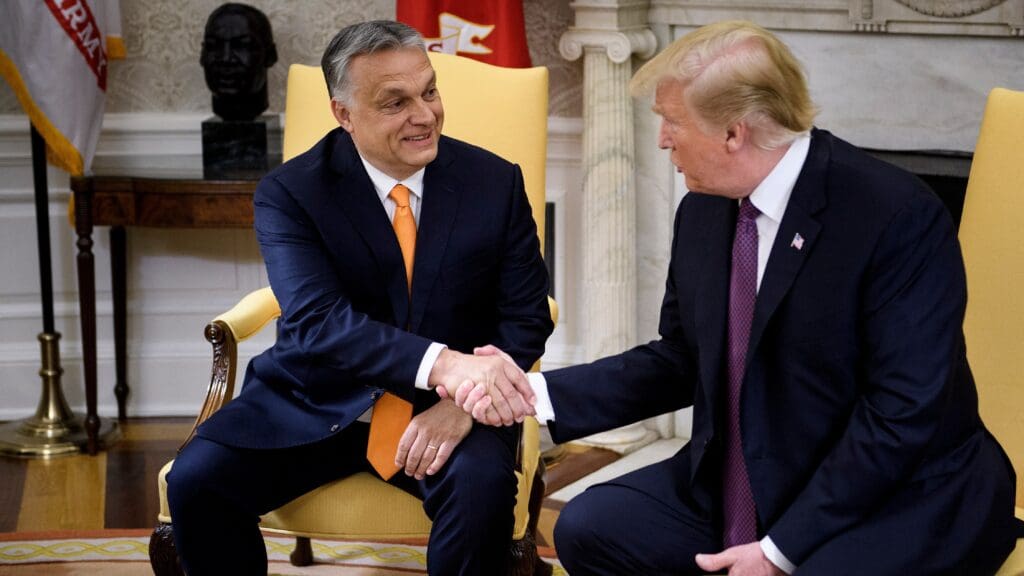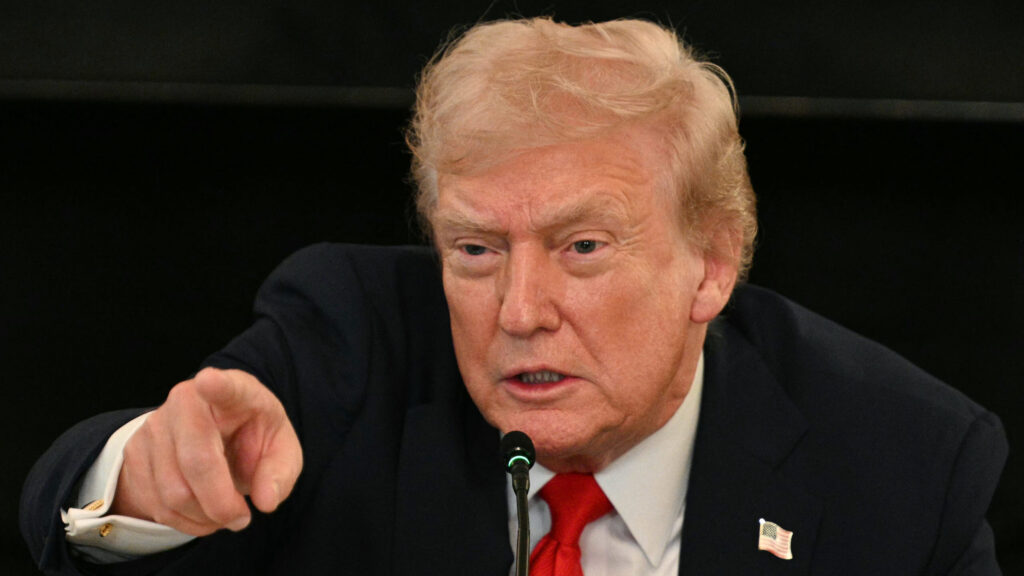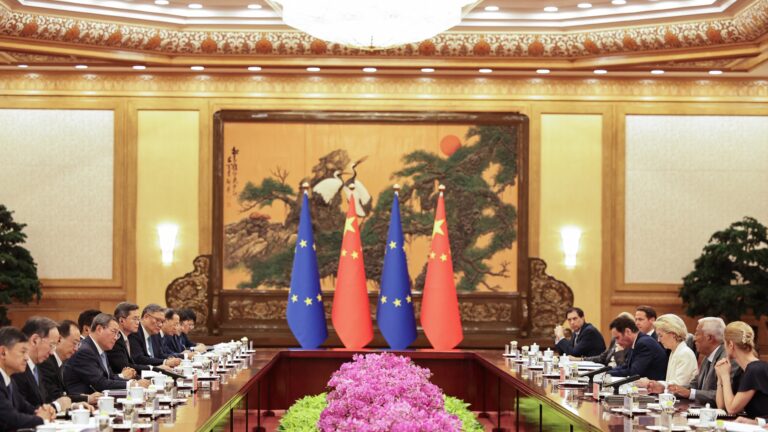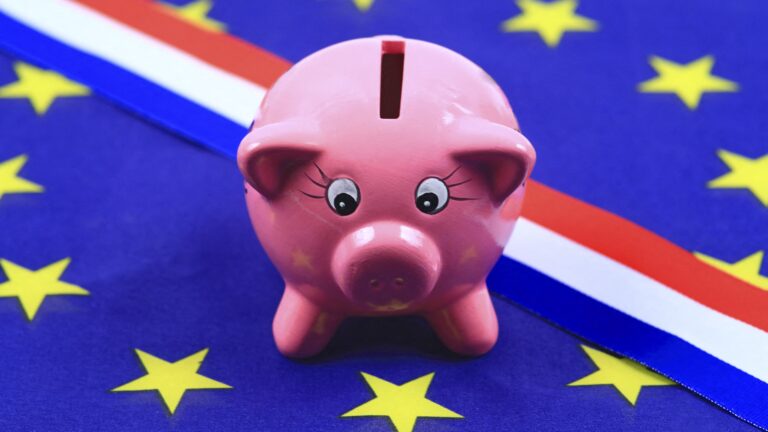The term ‘vibe shift’ originates from a 2021 essay by Sean Monahan, a trends consultant and blogger from LA.
The original vibe shift, as Monahan spotted it, was to do with a loosening in the culture: a turning away from screens, and from the stultifying permanence of social media, towards actions that enabled authenticity, community, and living in the moment. Monahan reckoned, for instance, that rock and roll would come back as a social force as people sought to come together in real life. Dirty noisy basements being the antithesis of a sanitised always-online culture.
Not much of that original meaning has survived, though the term is now everywhere. In recent months, it has been skinned and reborn to mean something quite different. In 2024, my inbox contained 124 different email mentions of it.
To talk of The Vibe Shift has become the default frame through which to view not just the second coming of Trumpism, but to gesture towards the thing that is beyond Trumpism, that we haven’t quite been able to place but can all feel. Something is stirring in the global waters. Something deeper than mere politics.
Much has been made in recent years of Timur Kuran’s theory of ‘preference falsification’. Kuran, a professor of political science at Duke University, came up with the idea of preference cascades: that history doesn’t happen linearly, that it gets up a head of steam, because most of the time, most people play along with a dominant ideology. Communist Eastern Europe is the most obvious example of Preference Falsification—everyone paying the piper of Marxist-Leninist thought, isolated by the quicksand of lies surrounding them; until, in 1989, the courage of one spreads contagiously through others, before, with alarming rapidity, the truth can be said, the lie falls away, and we get a Velvet Revolution, or a Ceaușescu Christmas.
It is titillating to imagine that we might be living through the second-best example of preference cascades in most of our lifetimes. Like the border guards of East Berlin who melted away one idle day in November, once the DEI commissars are sacked from corporate life, what might rush through the opened gates?
Deeper than mere politics lies the bedrock of culture. The smart money is already moving. After years of hiding their preferences, big important names are turning over their cards. Marc Andreessen, the head of Andreessen-Horowitz, possibly the world’s most successful venture capital fund, has turned into a tub-thumper for the Trumpist world view, appearing on notable interviews with the likes of Joe Rogan, in which he spelled out quite how much of the ancien régime is fake.
‘Once the DEI commissars are sacked from corporate life, what might rush through the opened gates?’
Meanwhile, Mark Zuckerberg has announced the end of manual censorship on Facebook, donating a million dollars towards Trump’s inauguration, and rowing-in behind the incoming bloc with all the zeal of the born lickspittle. Zuckerberg has great antennae for power. His reverse-ferret assures us that the vibe has indeed shifted.
Of course, Europe is not America. But as the zeitgeist picks up speed, the periphery of the American Empire can’t help but be touched by events at its core.
In 2017, at the time of Trump’s first term, the continent’s elites seemed united in their opposition. The vibe back then was smug-sensible: of ‘adults in the room’. The tepid bathwater politics of Merkel and Macron and Draghi was meant to reassure us that the European model was safe, robust, humane, while the wackos and yahoos of America were not.
This time round, Trump will return to a continent hobbled by the energy crisis of their boomeranging Ukraine War sanctions and of their sensible grown-up net zero obsessions. With Volkswagen announcing unprecedented layoffs. And France and Britain both teetering towards an overdue reckoning with the bond markets.
The people of the continent might not see the big picture of the failure of globalist liberalism, but increasingly, they understand that something has gone badly wrong. The difference is that now there is not only an immediate crisis – there is also an alternative model on hand.
The economic analyst Samo Burja likes to talk in terms of ‘live players’ and ‘dead players’. In his cosmology, live players are those with true agency. ‘Dead players’ are those who are rules-bound. They might be well known people, with important books, credos, stump speeches, jobs running the Danish Foreign Ministry, or whatever. But fundamentally, they are incapable of agency because they are incapable of acting outside of the order laid down by their superiors and their peers. They are frozen to the track lines of the dominant culture.
Compared to dead players, live players can walk through walls. That’s the moment we’re entering: beyond its particular policy prescriptions, one part of the culture is now tearing up the rule book.
So, whereas the previous regime was concerned with appearances, with projecting an urbane humanism, and crucially, having great optics on ‘the international stage’, the vibe shift is in its stomach, a kind of noble selfishness, a reversion to appetite, an un-self-consciousness in the face of the creaking post-1945 idea of ‘the optics’. As the internet is fond of saying: you can just do stuff. If Javier Milei can sack ten thousand bureaucrats, if Nayib Bukele can imprison ten thousand MS-13s, if Trump can buy Greenland and take back the Panama Canal—well, what else is on the menu?
As if the point needed further illustration, Elon Musk has been shelling the British establishment with a range of lurid stories from the scandal of Pakistani Muslim rape gangs. In a few afternoons, he has dismantled a taboo that stood for twenty years. A frame has broken open: to discuss all kinds of other questions, from the potential for deportation of dual nationals, to leaving the European Convention on Human Rights. The British state’s client journalists are in narrative disarray (but soon enough, they will adapt to the new vibe, and their old views will be conveniently memory-holed. This is the nature of the preference cascade).
After all, the best definition of populism is not one which is about popularity. It is not about ‘the triumph of the people’, or even policies that are overly simplistic. It is about the replacement of one elite by another. A counter-elite. A counter-elite is almost definitionally people whom the old elite would have shunned. Who would have been blackballed for civil service jobs, locked out of parliamentary selection lists, whose books wouldn’t have been published, whose research papers would have been quietly binned.
Regime change used to be a phrase that referred to knocking over the likes of Saddam. Today, it is a phrase that refers to knocking over the Western regimes. Be it Germany’s Social Democrats or British Conservatives, national uniparties from Brussels to Berlin are seeing their doom foretold.
This is the core. The coming of the vibe shift is most fundamentally the coming of a new set of people — any complete revolution in the head must start from different heads. But from these new heads will come a much wider new set possibilities. As with the post-war consensus it is replacing, some of the ideas it throws up will be vital to our future; others will turn out to be muddled or stillborn. Those on the right should not approach this moment with unalloyed joy; no doubt there will be many consequences that jar, that turn into their own issues.
But no one can deny that it is happening before our eyes. Now, at last, not just America, but Europe too, stands ready to be loosed, with all the power that being changed can give.







